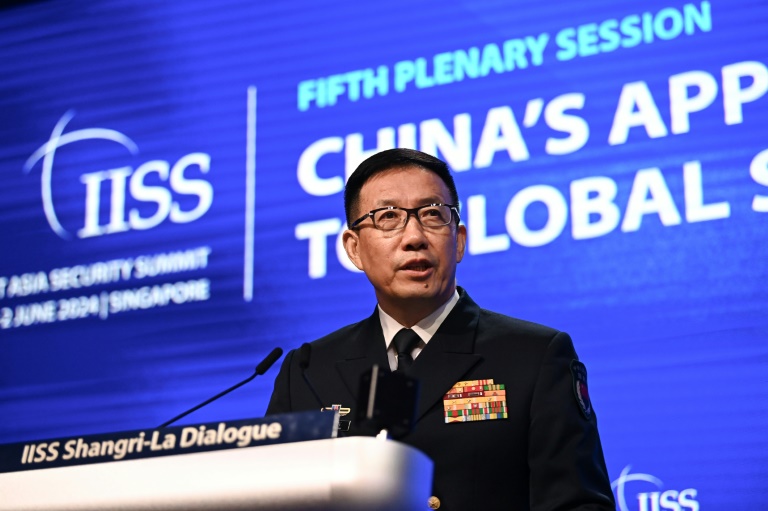Chinese Defence Minister Dong Jun made strong warnings about Taiwan’s independence at an annual security forum in Singapore, emphasizing the country’s readiness to forcefully stop any separatist movements. However, he also called for increased exchanges and cooperation with the United States, noting the importance of meeting halfway despite differences between the two militaries. This followed a meeting with US Defense Secretary Lloyd Austin at the forum, where they discussed resuming military communication in the coming months.
The Chinese People’s Liberation Army has vowed to defend the unification of the motherland and prevent Taiwan from achieving independence, with Dong stating that any attempts to separate Taiwan from China will be met with resolute and forceful action. This comes amid tensions surrounding military drills near Taiwan and warnings of war over the US-backed island after the inauguration of President Lai Ching-te. Dong also addressed China’s stance on the South China Sea, asserting that there are limits to Beijing’s restraint in the face of provocations.
Efforts to ease friction between the US and China have included increased communication and dialogue, with a focus on military-to-military talks to prevent potential disputes from escalating. The resumption of military communication is seen as crucial in managing flashpoint issues and preventing conflicts between the two nuclear-armed rivals. Tensions between Washington and Beijing have been exacerbated by various incidents, including military aid for Taiwan, deepening defence ties in the Asia-Pacific, and the regular presence of US warships and fighter jets in sensitive areas.
China’s decision to cease military communications with the US in 2022 in response to certain events has highlighted the importance of dialogue and cooperation in managing tensions. Issues such as alleged Chinese spy activities and high-profile visits to Taiwan by US officials have added to the strained relations between the two countries. Additionally, China is concerned about what it perceives as US efforts to contain its influence in the Asia-Pacific region, particularly through military deployments and alliances with countries like the Philippines.
The meeting between Dong Jun and Lloyd Austin at the Shangri-La Dialogue reflects ongoing efforts to improve communication and exchanges between China and the United States. The engagement between the two countries’ defence chiefs signals a willingness to address differences and find common ground on key issues related to security and military cooperation. Despite the challenges and tensions in the region, both sides have expressed a commitment to dialogue and constructive engagement to prevent further escalation of conflicts and maintain peace and stability in the Asia-Pacific.


